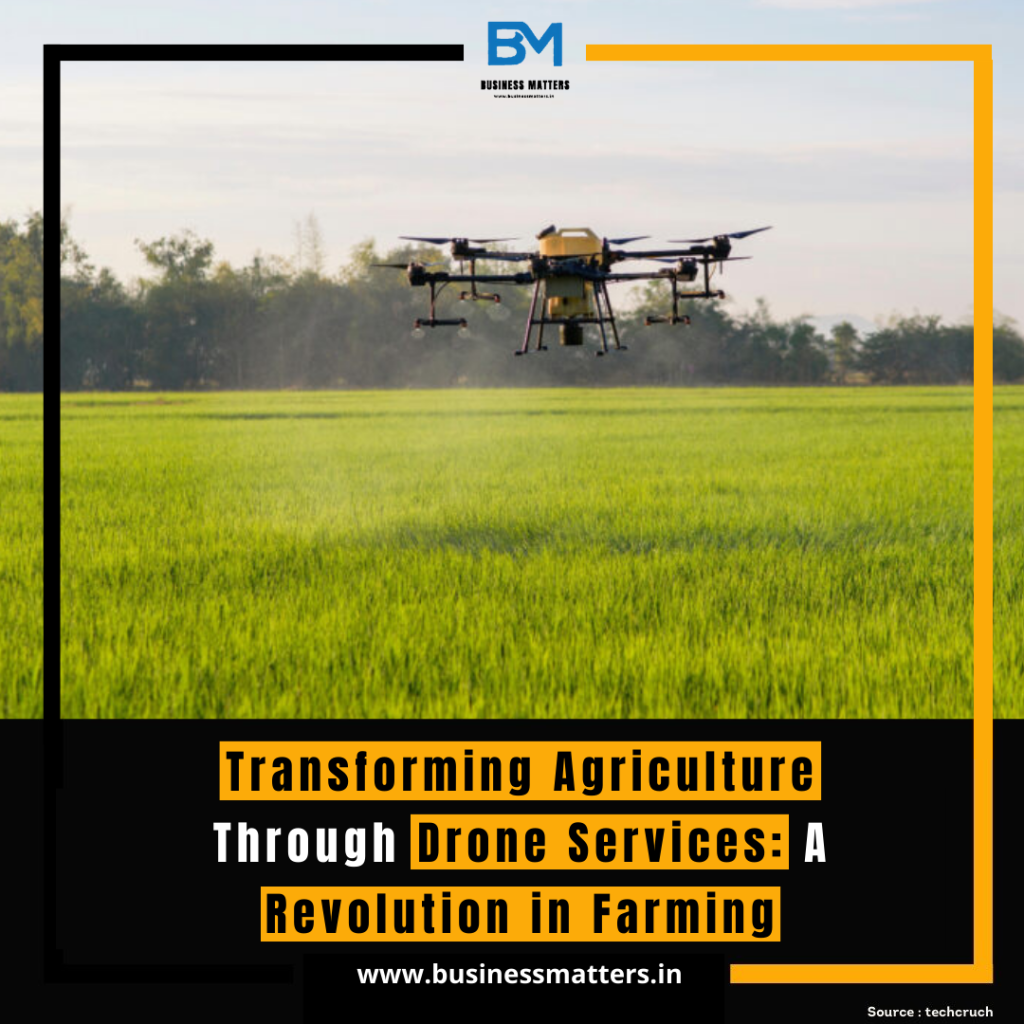Agriculture, the backbone of many economies, has come a long way from traditional farming methods. In recent years, it has witnessed a technological revolution with the integration of drones into farming practices. These unmanned aerial vehicles are soaring above fields worldwide, transforming agriculture in ways previously unimaginable. In this article, we will explore how drone services are revolutionizing farming and the significant impact they have on productivity, efficiency, and sustainability.
Precision Farming
One of the primary advantages of using drones in agriculture is precision farming. Drones equipped with high-resolution cameras and sensors can provide real-time data on crop health, soil conditions, and pest infestations. Farmers can then make data-driven decisions to optimize irrigation, fertilizer application, and pest control. This not only increases crop yields but also reduces the use of resources, making agriculture more sustainable.
Crop Monitoring
Drone technology allows for comprehensive crop monitoring throughout the growing season. Drones can capture images and multispectral data, enabling farmers to detect early signs of diseases, nutrient deficiencies, or other issues. Timely intervention can prevent crop losses, ultimately increasing farm profitability.
Irrigation Management
Efficient water management is crucial for sustainable agriculture. Drones can assess soil moisture levels and create precise irrigation plans. By minimizing water wastage, farmers not only conserve this precious resource but also reduce operational costs.
Pest Control
Pest infestations can devastate crops, leading to substantial financial losses. Drones equipped with thermal cameras can identify areas of crop stress caused by pests. This early detection enables farmers to target specific areas with pesticides, minimizing their use and environmental impact.
Crop Spraying
Drones are equipped with the capability to carry and disperse fertilizers and pesticides accurately. This method is not only more efficient but also reduces the health risks associated with manual spraying. Drones can cover large areas quickly, ensuring even distribution of substances and better crop health.
Mapping and Surveying
Drones are invaluable for land surveying and mapping. They can create high-resolution maps of fields, helping farmers plan and manage their land more effectively. Accurate maps also assist in addressing issues like erosion, drainage, and soil quality.
Livestock Management
Drones are not limited to crop management; they are also useful in livestock farming. They can monitor the health and behavior of animals, ensuring early detection of illness or distress. Drones can also help in locating and herding livestock, saving time and labor.
Environmental Benefits
By enabling precision agriculture, drones contribute to reducing the environmental footprint of farming. This includes fewer emissions from machinery and less chemical runoff into water bodies. Sustainable farming practices are not only economically viable but also essential for a healthier planet.
Challenges and Considerations
While drones offer numerous benefits, there are challenges to overcome. These include the cost of drone technology, training for farmers, and regulations. Integrating drones into existing farming operations may require adjustments and investments, but the long-term benefits often outweigh these challenges.
Conclusion
Drones are transforming agriculture into a more efficient, productive, and sustainable industry. They provide farmers with valuable data to make informed decisions, conserve resources, and reduce environmental impact. As technology continues to advance, the adoption of drone services in farming is likely to increase, further revolutionizing the way we produce food and manage our land. With the potential to address global food security challenges, drones are paving the way for a bright future in agriculture.


